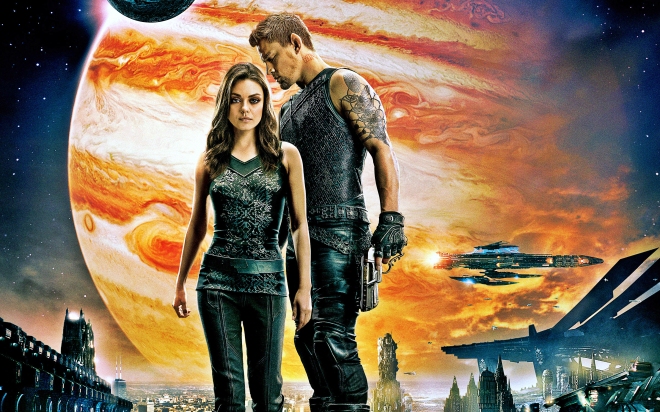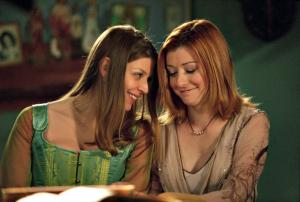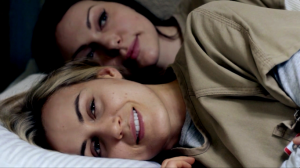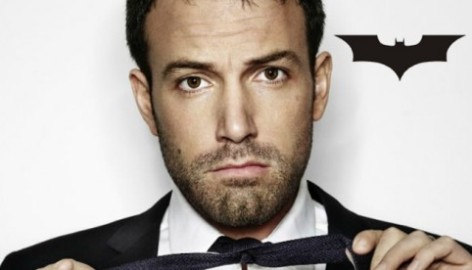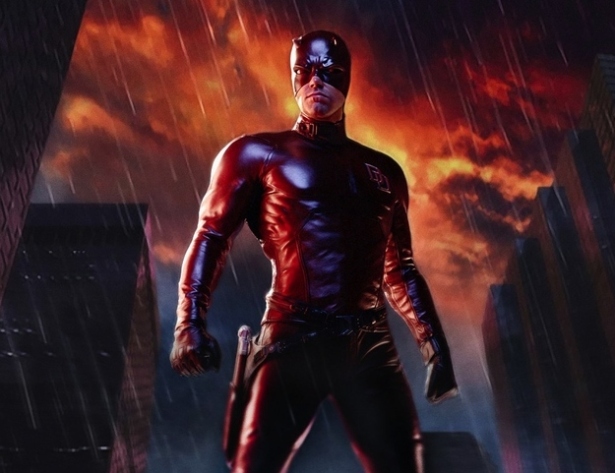
This Wonder Woman 1984 review is not about whether or not Wonder Woman 1984 is a good movie. That much is open to debate and it seems it will be debated at great length for the next several years which is a healthy part of this process and in many ways much more helpful than each new MCU movie being declared “THE BEST CBM EVER!” and then hardly ever mentioned again. This Wonder Woman 1984 review is about this film’s impact- and I have spent a lot of time in the genre so I know that there are garbage fires everywhere. No one knows that better than I do. But this film’s impact is boosted by a particular brand; a powerful brand that for just around 80 years has stood for progressive thought about women, feminist ideals, and represented the soul of the movement for the particular time in which it was written.
If this movie represents the soul of the contemporary feminist movement, then we are in serious trouble. Patty Jenkins’ first Wonder Woman movie saw feminist criticism that mostly relegated to dark corners. Marginalized women wondered where they fit into Wonder Woman’s world if they weren’t reflected in man’s world or weren’t reflected on the island. The movie didn’t just ignore queer women in a way to which queer women have become accustomed, it definitively edged us out of Themyscria. Trans and sapphic women were eliminated as even a possibility by the heterocentrism of the cast, director, and writer.

Women of color questioned why none of Diana’s companions were women and even though the casting on Themyscria was fairly diverse, why those Amazons of color were relegated to roles assisting white women or demonstrating astounding strength to be gawked at. Disabled women wondered if we were in fact contrasting Dr. Poison’s physical disfigurement to Diana’s flawless beauty in order to cast this woman as a foil and a villain. All of these concerns were either dismissed or marginalized as the voices that they came from in pursuit of debunking thin platitudes like “women can’t be strong and beautiful,” “women shouldn’t lead comic book movies,” “women don’t go see comic book movies so this is a financial risk,” and perhaps most hilariously oblivious of all, “wonder woman is a movie for men, too.”
All of the contrived conversations that grabbed the spotlight because people with powerful voices grabbed on to those narratives worked to do little else but promote the film and ensure that women who were already going to be inspired by this film felt justified in being inspired. So going into this movie, I know I personally did not expect much in terms of improvement. The right conversations had not been had and the right criticism had not been able to apply enough pressure to exact any sort of change. There were rumblings early in promotion that this film was going to give Barbara and Diana a romantic attraction or address the AIDS epidemic, which I respect as the sunny optimistic disposition of the queer community when it comes to these sorts of projects. As a community, our hope is unstoppable. Unfortunately, this turned out to be just another case of the community giving straight white women too many chances.
I’m going to unpack the film itself now that we have context, so beware that there are spoilers from here on out. Sorry to SO many international readers who have yet to even have a chance to watch this film. I would absolutely hold off until you got a chance, but there are some things that need to be said now; especially with Patty getting the green light for Wonder Woman 3.

There’s little to say about heterocentrism or homophobia in Wonder Woman 1984 except that Patty Jenkins’ Wonder Woman is not bisexual as she is in canon, and that question is not addressed mostly because queer people don’t exist in Jenkins’ Wonder Woman universe. Barbara would have been absolutely perfect for this because she is one of the most vibrant characters in the film and her flustered grappling with Diana can absolutely be read as attraction. But since queerness doesn’t exist, it’s never addressed, and even if you were to let Barbara be the lone queer character in this series, she would most certainly have been transformed into a predatory gay because as we know, Diana is straight and there are no significant committed relationships on Themyscria. There’s also no promised whisper of the AIDS epidemic and I can only assume, given the promo shot acknowledging it, that that is so that the movie can paint Ronald Regan as just a conflicted stressed out dude and ensure that none of the wishes that get “renounced” at the end of this plot are anything like “I wish I didn’t have AIDS.”
More egregious than the utter lack of queerness in this movie (this might be a movie where being ignored is a best case scenario) is the racism prevalent in the script and the direction. Arab stereotypes run WILD which seems like a really strange choice for a movie starring a white Isreali woman. And that doesn’t have anything to do with Gal herself in my opinion, but the impact of seeing this white savior save brown child after brown child becomes a cumulative effect that is bolstered once the movie goes to Cairo and Diana is protecting non-white children (folks more well versed in geography have pointed out that the movie seems deeply confused about region and ethnicity here) from non-white men. We have “oil barons” wishing for the removal of “heathens” from their ancestral lands, we have random Arab men wishing for nuclear weapons, all without complication or context for the conflicts in question or the situations at hand. These stereotypes are so broad and common that they seem just as lazy as they are racist.
I have seen less talk, however, about how Pedro Pascal’s racebent Maxwell Lord has been treated. When I saw the promotional pictures come out, Pedro was so made up and dyed and plastered that I assumed he was playing a white man, and the reversal was charming to me. In the first couple scenes, it DOES feel like Pedro is “playing” white, his impression is flawless and slimy and wonderful, but very soon after that it is revealed that Pedro isn’t the one playing white; Max is passing. An old white man who is certainly more culpable than Max is throws his real name, Lorenzano, at him like a dart. He calls him a “lowlife conman.” It becomes clear that Maxwell’s cardinal sin in this situation is attempting to catapult himself beyond his station. The narrative is not worried about tsk tsking the ambition of a Latino man in a white supremacist American capitalist nightmare, though, it’s just concerned with the fact that HE LIED. This is an implication that is even more troubling because yes he lied about the viability of the oil wells he had asked this man to invest in, but are we not also talking about him lying about who, or put more sharply; WHAT he was?

Pascal pulls out ALL the stops to make Max’s relationship with his son Alistair the beating heart of the movie but Alistair is a flat character who has no defining character traits aside from a home haircut, a perpetually bewildered look, and, as the actor cast to play him is biracial, an invisible Asian mother whose absence Jenkins’ casually dismissed in her livetweet of the movie on Saturday. In the end, what could have been the most stirring scene between them is spoiled by the misapplication of an instrumental track from Batman v Superman that Jenkins admitted that they were using as a placeholder while they worked on the score. Maybe it worked for some people, but for me I definitely didn’t want to be thinking about Batman’s parents dying while watching a soft tearful reunion between Max and his son.
If you’ve been shaped by white feminism at all, you may not realize that all of the issues in this article so far have been issues of feminist praxis (praxis is the practical regular application of the principles of feminism) because intersectionality is something that was missing in Jenkins’ first Wonder Woman film and it is absent in this film as well, but Wonder Woman 1984 even fails its own flimsy principles in its quest to support and affirm patriarchy and white supremacy. Many many concerns, even from die-hard fans, were raised about bringing back Steve Trevor for this sequel, and everyone who was concerned was absolutely right to be. This is not a Wonder Woman movie, and as much as we all adore Chris Pine and his performance as Trevor, he is the principle reason that Diana is not central to the plot. It’s shocking, actually, given the modern white feminists’ aversion to giving strong female characters anything resembling romance that this hasn’t been called out more, but Diana crosses over the line between “allowed to enjoy romance,” well into the terrain of “absolutely obsessed by romance” and never looks back.
The premise itself is that she has made no further human connections in the 70 year gap between movies and that she has been completely celibate in that gap because her heart is so broken about the man she spent a week with. It’s an ENORMOUS ask to expect the audience to buy into this emotionally, and I can only assume that most of the direction to Gal was for this to make Diana act like an actual jerk to everyone around her. The kindness that we expect from Wonder Woman is present in Barbara, but Diana is condescending, patronizing, and comes across exceedingly phony to each character she interacts with who is not Steve. Steve, on the other hand, gets loads of character moments, we see him get to experience several modern marvels, learn how to fly a jet as he’s doing it, and give a fashion show. We know Steve 100 times better than we know Diana. He’s an dynamic character with an excellent moral compass who steals the agency at every turn from Diana who may as well be made of stone until it’s suggested that she might have to relinquish her boyfriend.
The fact that the whole performance seems to have a sort of mean-girl sheen over it would perhaps not have been such a problem for the feminism of this film if Diana was written doing anything that demonstrated her heroism on a personal level. Sure, Wonder Woman often swoops in and saves assorted children from danger, but we don’t see her being kind and considerate with her coworkers, we don’t see her, as we see Barbara, reaffirming a longstanding relationship with a homeless man in the park. We don’t have any evidence that Diana Prince is doing her part to make the world a better place, as this movie somehow feels entitled to demand from the world and its audience in the end. In fact, the most sinister thing that happens in the entire film is something that Diana and Steve do, which is their comfort with commandeering the body of the random man that Steve is resurrected into. This decision is absolutely BAFFLING. Not only do they have a long conversation about this man’s body like he’s a hot Ferrari that Steve gets to drive around now, but our hero then proceeds to HAVE SEX with that body. These scenes are so full of giggles that the tone becomes something both sinister and maniacal as this man’s body is used fully without his consent.
The feminist concerns when it comes to gender are not entirely centered around Diana, either. The storyline with Barbara plays a classic misogynist tune that I would have imagined even a cursory understanding of feminist philosophy would help a writer or director avoid. Barbara’s wish is one of the most understandable wishes in the film, which isn’t saying much because the film makes sure that somehow every person on the planet has some sort of terrible or selfish wish as opposed to what most of us would wish for- safety, the return of a loved one, health, or freedom from tyranny. Barbara wishes to be like Diana, and it’s easy to see why. Diana is well-liked, seen, and respected (which again is wild because she’s not friendly to anyone she meets) and Barbara figures out the secret to Diana’s appeal, as every woman already knows- a command over femininity, which is symbolized by Barbara’s ability to walk in heels. Instead of imaging that because Barbara dreams it she can be it (this isn’t compulsory femininity, remember, it’s something Barbara wants) the narrative reads Barbara’s inability to accept her natural lack of grace and feminine wiles as cheating. Apparently, femininity isn’t for women who have to work for it; if you wake up and have to put on a bunch of makeup and fuss with your hair, then you’re a liar!
Sound familiar, anyone? It should because it’s the oldest misogynist trick in the book!
Women are allowed to be beautiful and strong, in WW84’s estimation, but only if they come by that beauty and strength naturally. People are allowed to be rich and prosperous, but not WANT to be rich and prosperous, so if you weren’t born into money, wanting more for yourself or your family can only lead to overwhelming greed. This movie is going to tout itself as anti-capitalist and it is not anti-capitalist. It’s absolutely in support of this system that grinds up the marginalized and poor and fuck them if they want more from their one life. I don’t think it needs to be said, but this is a really difficult message to swallow in the midst of a pandemic from a handful of the very rich people who have spent the last couple weeks whining about having their movies available outside of the box office where they will make less money.
This movie is being pushed as pro-truth, anti-cheating, and in opposition to selfishness but what it doesn’t grapple with for even a moment, and this is the downfall at the center of the film, is that none of these values mean a damn thing in the absence of justice. Jenkins’ Wonder Woman goes blazing into 1984 SOMEHOW assuming an even playing ground for everyone involved. At a period in history that was driven by a virulently racist president, that stripped the poor of safety nets, that tipped the economy in a way that we have yet to recover from, that saw a genocide in the gay community that still haunts us, this movie chose to focus on the evils of ambition and materialism because it somehow assumes that you’re equally culpable no matter who you are. This is a decision that should haunt it. We cannot stand still while this white feminist finger wagged in our faces tells us WE at the bottom of this hierarchy ought to be better; especially not from atop their guilty pile of riches.






